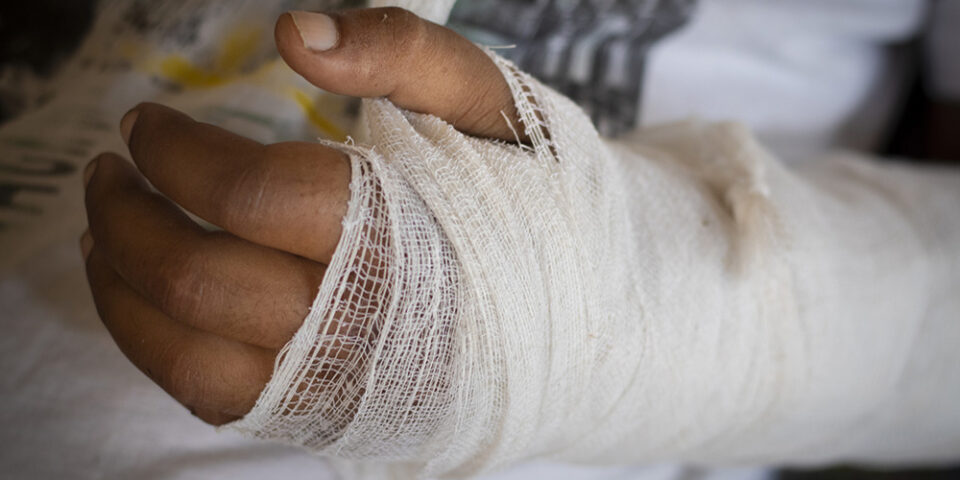How long does a broken bone take to heal?
For some of us, a broken bone is pretty much an inevitable part of life. Whether it’s a broken arm during childhood misadventures or stress fractures to the hip as we age, broken bones are painful, inconvenient and can lead to chronic discomfort and pain if not properly treated. How long does it take to heal a broken bone? Why are broken bones so dangerous for the elderly? Orthopedic surgeon James Dallis, MD, answered these questions and more.
How do you know if you’ve broken a bone?
“The only true way to find out if a bone is broken is through an X-ray,” said Dr. Dallis. “In some cases, there will be something visually wrong with the bone, and there are some symptoms that can suggest your bone is broken, but an X-ray would still be needed to confirm.”
If you experience any or all of the following, your bone might be broken:
- Intense pain in the region where the break occurs
- Limited or no ability to move the limb or put weight on the affected leg
- Feeling numb or tingly in the area
- Swelling, bruising or bleeding
If you or a loved one is injured and you think there might be a broken bone, go to the emergency room immediately for diagnosis and to begin treatment.
How is a broken bone treated?
“Treatment really depends on the location of the fracture and how severe it is,” said Dr. Dallis. “Many times, the affected limb can simply be put into a cast. In other situations, the fracture may need to be moved or manipulated back into the position it’s meant to be in and then splinted or put into a cast.”
In more severe situations, though, surgery may be needed to return the bone to the proper alignment.
How long does it take to heal a broken bone?
“Broken bones can take anywhere from three to four weeks to three or four months to completely heal,” said Dr. Dallis. “How long healing will take depends on the location where the break occurred and your age.”
Why are broken bones so dangerous for the elderly?
Bone density and strength decline as you age, with your bone density reaching its peak in your thirties and tending to decrease every year afterward. Women are especially vulnerable to loss of bone strength due to the hormonal changes that come with menopause and the potential of osteoporosis.
Broken bones become a common result of a fall as you age and they also take longer to recover from.
What can you do to keep your bones healthy?
“A good exercise program is important for bone health and maintaining bone density,” said Dr. Dallis.
Exercise doesn’t necessarily equal the need for a pricey gym membership, either. You can usually find free workouts you can do right at home, including our MoveWell series, that allow you to set your own pace and build the strength and flexibility that will help protect your body and bones.
Nutrition also plays an essential role in protecting your bone health. Make sure to include plenty of calcium and Vitamin D, both of which help strengthen your bones throughout your life.
Find an orthopedic specialist you trust
Find a provider who’s right for you by viewing their online profiles, star ratings and reviews.
Find an Orthopedic Doctor

